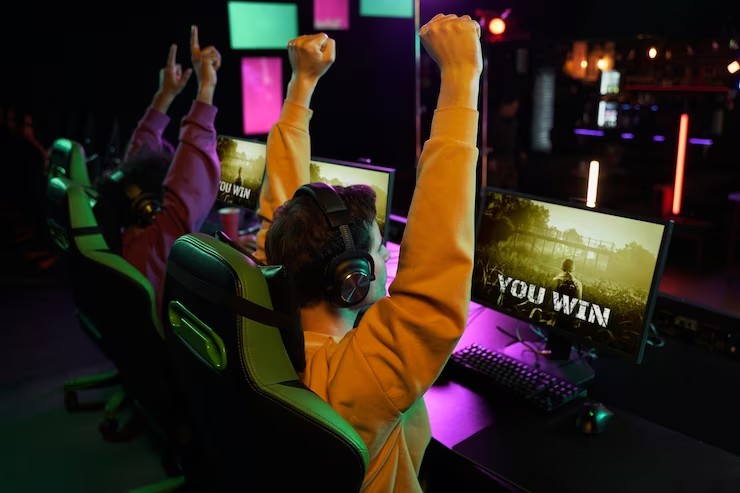In recent years, the intersection of gaming and cryptocurrency has given rise to a new frontier for entrepreneurs and startups looking to explore innovative ways to earn revenue. Gaming crypto coins, also known as non-fungible tokens (NFTs) and blockchain-based assets within virtual worlds, have become a hot topic in both the gaming and crypto communities. Leveraging gaming crypto coins for startup earnings? This article will delve into the various aspects of how startups can tap into the potential of gaming crypto coins to generate income and foster growth.
Understanding Gaming Crypto Coins:
Gaming crypto coins are unique digital assets that exist on blockchain networks. Unlike traditional in-game currencies, these tokens are often based on blockchain technology, providing transparency, security, and ownership to users. NFTs, a subset of gaming crypto coins, represent ownership of specific in-game items, characters, or other digital assets.
Creating and Launching NFTs:
Startups can leverage gaming crypto coins by creating and launching their NFTs within gaming ecosystems. This could include unique in-game items, characters, or even entire levels. The ownership and scarcity of these digital assets can create a demand among gamers, leading to potential revenue streams through sales and transactions.
Blockchain-based Gaming Platforms:
Developing or partnering with blockchain-based gaming platforms opens up new opportunities for startups. These platforms often use gaming crypto coins as the primary mode of transactions, allowing users to buy, sell, and trade in-game assets seamlessly. By integrating their products or services with such platforms, startups can tap into a ready-made user base.
Monetizing Gaming Crypto Coins:
Token Sales and Initial NFT Offerings (INOs):
Startups can initiate token sales or INOs to fund their projects and generate initial interest. This involves selling a portion of gaming crypto coins to investors or users, providing them with early access to in-game assets or exclusive perks. This method not only raises capital but also builds a community around the startup.
In-Game Purchases with Crypto:
Integrating gaming crypto coins as a means of in-game purchases allows startups to monetize their products directly. Users can buy virtual items, and upgrades, or access special features using these digital assets. This model encourages user engagement and loyalty, as gamers can benefit from real-world value for their in-game investments.
NFT Marketplaces:
Creating or participating in NFT marketplaces dedicated to gaming assets provides startups with a platform to sell their unique items. By listing NFTs on established marketplaces, startups can attract a broader audience of collectors and gamers interested in owning rare and exclusive digital assets.
Gaming Sponsorships and Partnerships:
Partnering with gaming influencers and content creators who have a substantial following can expose startups to a larger audience. Offering unique NFTs or gaming crypto coins as part of sponsorship deals not only promotes the startup but also generates revenue through increased sales and visibility.
Challenges and Considerations:
Scalability and Blockchain Limitations:
While blockchain provides transparency and security, it may face challenges regarding scalability. Startups need to consider the limitations of the chosen blockchain to ensure a smooth and efficient gaming experience for users.
Community Building:
Success in the gaming crypto space relies heavily on community support. Startups should actively engage with their audience, listen to feedback, and foster a sense of community to ensure sustained interest and growth.
Legal and Regulatory Compliance:
The regulatory landscape for crypto and gaming is evolving. Startups must navigate legal considerations and compliance issues to avoid potential setbacks. Seeking legal counsel and staying informed about regulatory changes is crucial.
Conclusion:
The convergence of gaming and cryptocurrency presents a unique opportunity for startups to explore innovative revenue streams. By leveraging gaming crypto coins, such as NFTs, startups can not only generate income but also foster community engagement and growth. However, success in this space requires a strategic approach, careful consideration of blockchain technology, and proactive community building. As the gaming crypto industry continues to evolve, entrepreneurs and startups must stay adaptable and creative to capitalize on this exciting intersection of technology and entertainment.
















